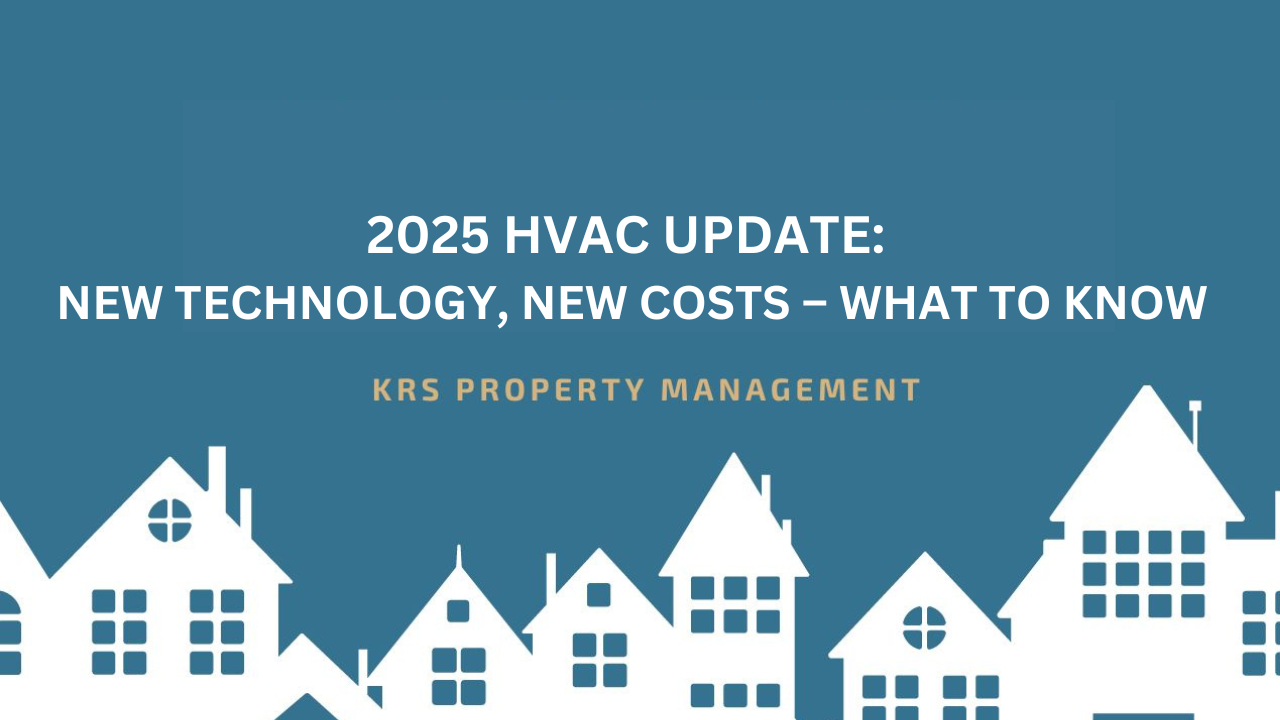
Residential homeowners, landlords and investors, HVAC is the single hardest working mechanical system in your residence or rental unit.
Its replacement or repair ranks as the most costly line item in your maintenance budget.
The Issue … Changes, Concerns, Costs
Effective January 1, 2025, the Environmental Protection Agency (EPA) mandates that new HVAC systems support refrigerants that are more environmentally friendly. The intent is to reduce greenhouse gas emissions and ozone depletion resulting in a lower Global Warming Potential.
New systems will replace the current refrigerant standard, R-410A, with R-32 or R-454B. For those of us who rely on HVAC systems in our home or rental units, the transition to the new refrigerants will most certainly lead to higher repair and replacement costs.
The expected bump in costs boil down to the following:
- Existing HVAC systems may need to be retrofitted or upgraded to be compatible with the new refrigerant requirements.
- HVAC system manufacturers must re-engineer production processes and tools.
- New processes will require additional investment in equipment, tools, gauges and training.
- Demand for the new systems will drive additional stresses on all elements of the supply chain.
- All of the above to result in higher production costs most likely passed on to consumers.
Current industry consensus is compliance with the new regulations will impact both the initial purchase price and ongoing maintenance expense for homeowners. Projections peg the increase of the cost of new HVAC systems for single family homes at 10% to 30% … a bump of $2,000 to $5,000 to replace systems that comply with the new technology, safety features and technical training.
Similarly, the cost of HVAC systems for multifamily apartment buildings in 2025 is expected to increase by 15% to 30% given the new EPA regulations mandating a shift to new, more environmentally friendly refrigerants. Of course dollar cost increases for both initial purchase price and recurring maintenance will vary based on the property, its location and installation considerations.
Decisions, Decisions, Decisions
Here’s the operative question: What to do … and when?
Here's a suggestion for immediate action followed by two replacement options.
Condition of Your Existing System: The optimum lifespan of a well-maintained HVAC system is 15-20 years. That said, several factors determine its lifetime value which may be years shorter than the optimum.
- Quality of installation
- Quality of the equipment
- Frequency of professional maintenance
- Climate
- Level of usage … temperature settings
A professional evaluation of your system will help you determine its condition. If it’s closing in on the end of its useful life, replacing it may be your best option. Alternatively, if your system is functioning well you may be better off retaining your equipment and invest in regular maintenance and repairs.
Note: Existing HVAC equipment may continue in use until the end of the system’s functional life. If your equipment has an extended life expectancy R-410A refrigerant will remain available to service your system.
A Purchase Option Cushion: You may decide to move forward with the purchase of a new HVAC system, but are unsure whether the new systems are the right choice. There is a one-year wait-and-see opportunity if you’re not ready to replace your existing system immediately. Equipment manufactured before January 1, 2025, has an installation deadline of January 1, 2026. That gives you plenty of time to decide. Keep in mind there’s no guarantee of how many of these units will remain available.
Buy New: If the above purchase option is not attractive for you, buying new is the alternative. Doing so ensures compliance with the EPA mandate plus supports a more environmentally-friendly solution. Another consideration … the new systems are expected to be more energy-efficient. That may mean savings on your energy bills over time to offset the higher initial investment.
Takeaways
Your decision to purchase a new EPA compliant HVAC system will depend on your evaluation of the above alternatives. Best next step … consult with an HVAC professional to help you understand the potential impact of the new regulations based on your needs, timing and budget. Click here for a proven resource.
Whether becoming a landlord was a choice or a result of circumstance, it doesn’t change the fact that managing any property comes with its challenges… and we want to help.
Give us a call or drop an email. We’ll respond promptly to relieve
your stress and help you evaluate your property management options
plus maximize your rental property return on investment.






